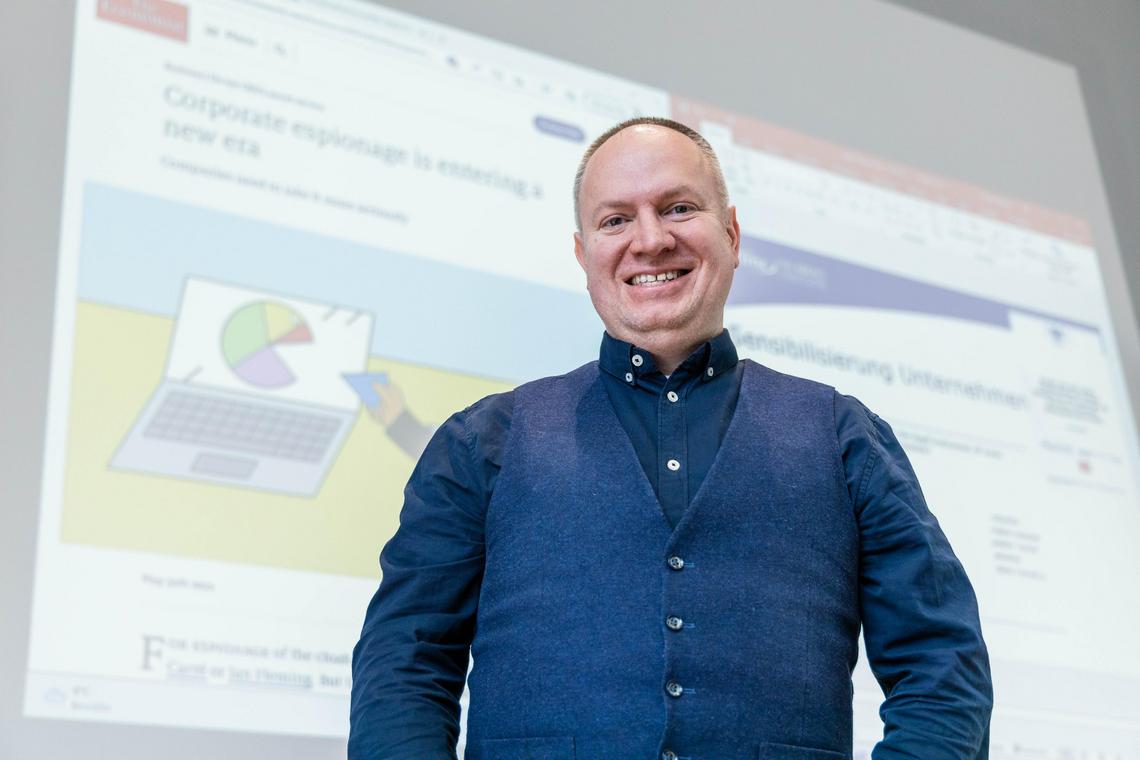News
Practical focus the key to excellence

Entitled “Legal protection of trade secrets in the data economy”, the study was performed by researchers Alfred Radauer, Martin Bader, Tanya Aplin, Ute Konopka, Nicola Searle, Reinhard Altenburger and Christine Bachner on behalf of the European Commission and the European Innovation Council and SME Executive Agency (EISMEA). The research team collaborated with the BGW AG Management Advisory Group (St. Gallen), King’s College London and the University of London. The authors analysed the extent to which the EU legal framework on trade secrets is applicable to data shared between companies and organisations, as well as investigating the actual use of such secrets by European businesses for innovation management purposes in this context.
Trade secrets growing in importance
Information for the recent study was collected through interviews. Surveys and case studies were used to assess whether and in what ways data exchanged by companies are protected. A reflection of the growing significance of new technologies such as the internet of things and artificial intelligence, the data economy and data sharing, the study showed that approaches for protecting and utilising shared data in the form of trade secrets are failing to keep pace with these advances. Only a small proportion of EU enterprises have the necessary in-depth expertise in applying trade secrecy controls to shared data. Contracts are the instrument of choice when it comes to protecting data of this kind. In practice, trade secrets serve as a potential safety net to protect against breaches of contract, or failure to comply with contractual provisions. Another motive for using trade secrets is to protect data from third parties that companies have not concluded a contract with regarding shared data.
The study makes a number of recommendations in three areas:
- Enhancing companies’ operational performance when it comes to applying trade secrecy to shared data and managing those secrets
- Ways in which policymakers can reduce potential ambiguities in the interpretation of the EU trade secrets directive, and
- Improving and monitoring the legal framework related to the practical application of trade secrets
The findings will feed into the European legislative process and will also be incorporated into the development of business subsidy programmes.
Research with a strong practical focus
This study is an excellent example of the applications-based, interdisciplinary research conducted by IMC Krems. Besides employing lecturers with solid practical experience, the university also ensures that full-time teaching staff maintain their links with business practice – in particular by carrying out applications-based research.
“In the course of application-focused research projects, the emphasis is primarily on forging relations with industry and interacting with experts with a view to identifying and analysing highly topical issues,” explained project manager and lead author of the study Alfred Radauer, who is also head of IMC Krems’ Institute of Business Administration and Management, and director of the Management degree programme. “Further down the road, the findings will not only be published, but will also be integrated into teaching, in this case into courses on innovation management and strategy development. This will give students access to expertise which is so up-to-date that it is normally not even available in textbooks.” In this way, IMC Krems gives its students a clear competitive advantage. What’s more, lecturers ensure that they keep up to speed with the latest business practices and can incorporate them into their courses – creating a win-win solution for all concerned.
